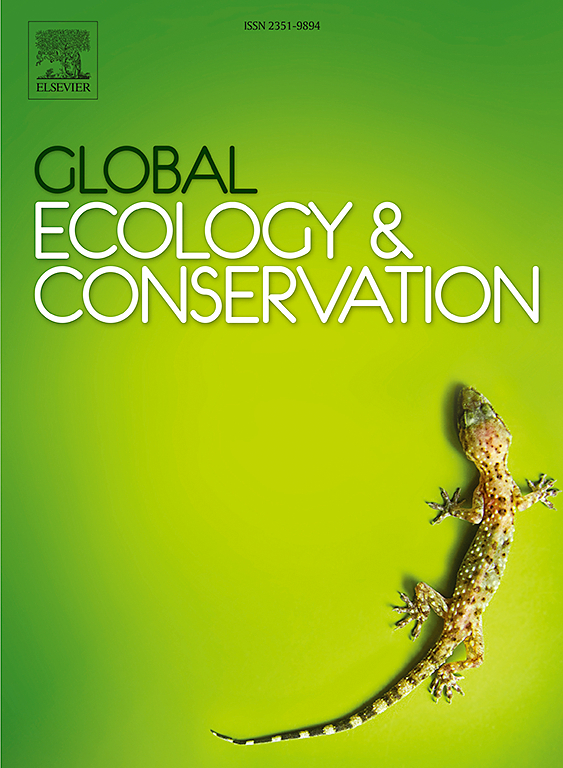人狼共存的八项策略及其在瑞士治理缺口中的应用
IF 3.4
2区 环境科学与生态学
Q1 BIODIVERSITY CONSERVATION
引用次数: 0
摘要
越来越多的保护措施导致欧洲狼的数量增加。然而,当农民和农村居民担心他们的生计时,由此产生的保护冲突削弱了对保护的支持。促进人狼共存可以通过多种策略来实现。通过使用制度分析与发展(IAD)框架,我提供了一个关于人狼共存策略的一般政策视角。这些策略可以综合为8个策略,包括:(1)狼的栖息地和种群管理,(2)科学研究和交流,(3)教育和意识,(4)农场一级的牲畜保护(包括新技术),(5)保护冲突的解决和调解,(6)社区保护和(7)金融工具。这些战略需要纳入法律保护框架和政策。然后,我特别指出了瑞士狼群保护的缺失策略和新出现的机会,这是一个相关的案例研究,因为农村居民的反对呼声越来越高。我认为,瑞士在人狼共存的方法中缺少两种策略,这两种策略可以为人类,特别是农民和狼创造持续的共同利益:金融工具(包括利益分享和保护绩效支付)和以社区为基础的保护。这些发现旨在激发科学辩论,并通过对人狼共存的整体方法的政策探索其在瑞士的适用性。本文章由计算机程序翻译,如有差异,请以英文原文为准。
Eight strategies for human–wolf coexistence and their application to Swiss governance gaps
Increasing conservation efforts have led to increases in wolf populations in Europe. However, the resulting conservation conflicts erode conservation support when farmers and rural citizens fear for their livelihoods. Fostering human–wolf coexistence can be achieved through a variety of strategies. By using the Institutional Analysis and Development (IAD) framework, I provide a general policy perspective on strategies for human–wolf coexistence. These can be synthesised into eight strategies and include: (1) wolf habitat and population management, (2) scientific research and exchange, (3) education and awareness, (4) farm-level livestock protection (including new technologies), (5) resolution and mediation of conservation conflicts, (6) community-based conservation and (7) financial instruments. These strategies need to be embedded into (8) legal protection frameworks and policies. I then identify missing strategies and emerging opportunities for wolf conservation in Switzerland specifically, which is a relevant case study due to mounting opposition among rural citizens. I suggest that two strategies in Switzerland’s approach to human–wolf coexistence are missing, which can create sustained co-benefits for both humans, especially farmers, and wolves: financial instruments (including benefit sharing and conservation performance payments) and community-based conservation. These findings aim at stimulating scientific debate as well as exploring their applicability in Switzerland through policy for a holistic approach to human–wolf coexistence.
求助全文
通过发布文献求助,成功后即可免费获取论文全文。
去求助
来源期刊

Global Ecology and Conservation
Agricultural and Biological Sciences-Ecology, Evolution, Behavior and Systematics
CiteScore
8.10
自引率
5.00%
发文量
346
审稿时长
83 days
期刊介绍:
Global Ecology and Conservation is a peer-reviewed, open-access journal covering all sub-disciplines of ecological and conservation science: from theory to practice, from molecules to ecosystems, from regional to global. The fields covered include: organismal, population, community, and ecosystem ecology; physiological, evolutionary, and behavioral ecology; and conservation science.
 求助内容:
求助内容: 应助结果提醒方式:
应助结果提醒方式:


